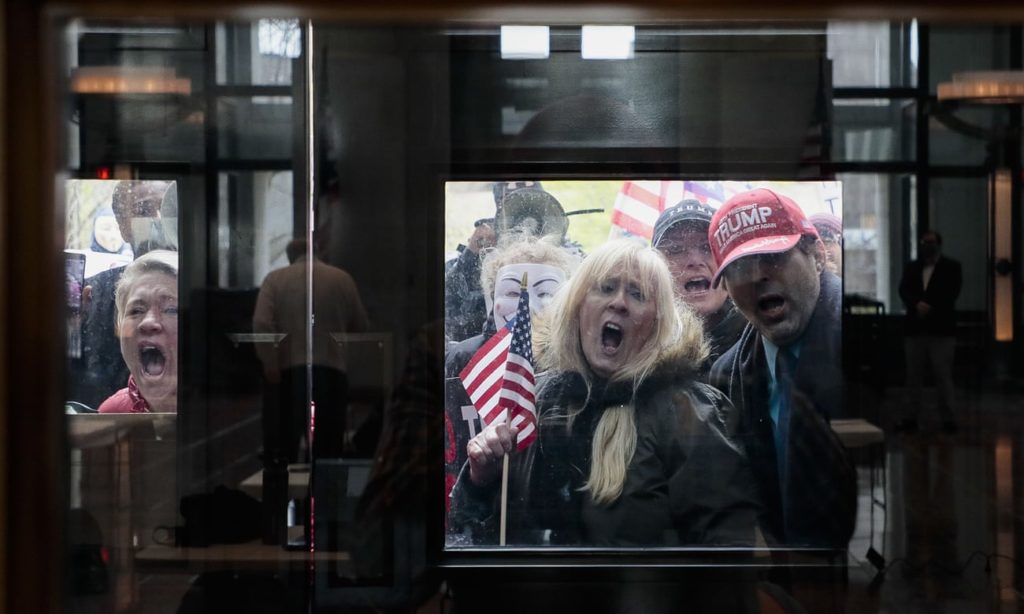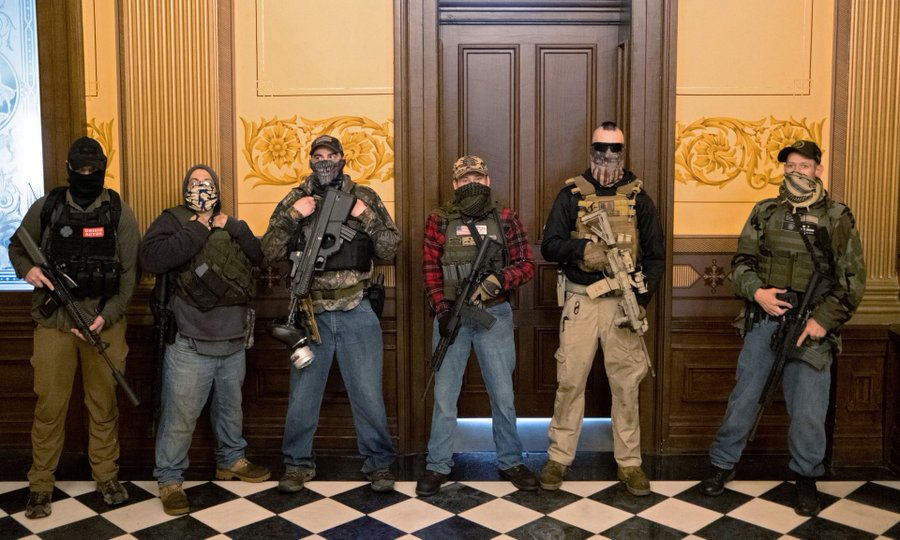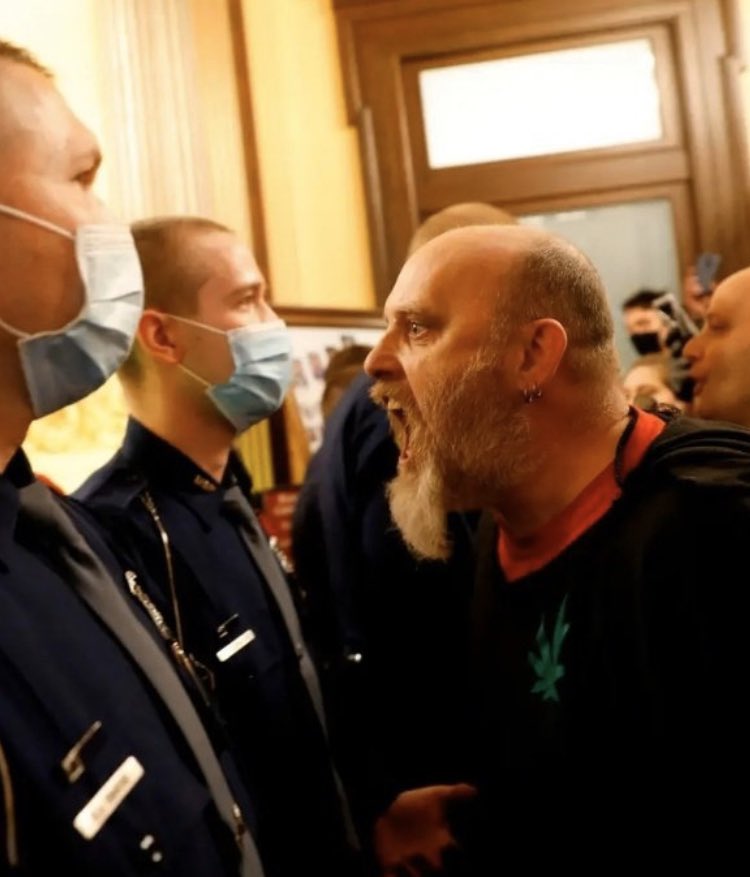It’s Not Just COVID-19; We’re Also
Facing a Mental Health Crisis
By Bandy X.
Lee
 The medical director of the
emergency department at New York-Presbyterian Allen Hospital, Dr. Lorna Breen,
49, died by suicide last week.
The medical director of the
emergency department at New York-Presbyterian Allen Hospital, Dr. Lorna Breen,
49, died by suicide last week. She died, not in the thick of emergency work in the nation’s epicenter of the coronavirus pandemic, but afterward, while she was staying at her family home.
She recounted to her father the devastating toll the virus took on patients.
Shortly following her was another
frontline emergency medical worker, John Mondello, 23, who is said to have
experienced anxiety around the amount of death he saw, which affected him as a
“heavy experience when he’d fail to save a life.”
 Trauma is often seen as a normal
reaction to an abnormal situation.
Trauma is often seen as a normal
reaction to an abnormal situation. Traumatic effects are greater when the abnormal situation is human-caused. Moral injury is felt at a personal level where social injury occurs.
Many rightly see these losses as a harbinger of the mental health crisis that is to come. And perhaps the crisis will be much bigger than we are can imagine if we considered the human contribution to the tragedy.
What people find the hardest to cope
with is not the suffering itself but the knowledge of what human beings are
capable of doing to other human beings, and what their own government has done
to them.
Frontline workers are at risk not only for having witnessed the frightening damages of the virus directly. Many will be grappling with their own scientific knowledge that
- 24,000 died so far as we know in New York State alone
- 67,000 known dead Americans so far in just a few months far surpasses 50,000 American deaths in 20 years of the Vietnam war
- 30,000,000 million reported losing jobs. Many more Americans seeking jobless benefits just couldn’t through to government websites.
 These crushing numbers will
translate into more hardship, suicides and homicides, almost entirely did not have to be.
These crushing numbers will
translate into more hardship, suicides and homicides, almost entirely did not have to be.
Not only that, but society has
failed frontline workers through depletion of public infrastructures over
decades.
Desperation and limited resources became the norm for those trying to provide care through profit-driven hospital systems.
Desperation and limited resources became the norm for those trying to provide care through profit-driven hospital systems.
Government Failures
Adding insult to injury, we have a
federal government that has failed to stockpile necessary
equipment because it is not profitable for big business.
It was equally unresponsive to pleas for ventilators and medical supplies, sending governors and mayors on bidding wars with one another. And this is only the proximal cause of the horrors healthcare workers will experience when starved resources compel them to make the ultimate decision of who will live and who will die.
It was equally unresponsive to pleas for ventilators and medical supplies, sending governors and mayors on bidding wars with one another. And this is only the proximal cause of the horrors healthcare workers will experience when starved resources compel them to make the ultimate decision of who will live and who will die.
In my 15 years of teaching students
at Yale Law School learning to represent political asylum seekers from all
regions of the world, I have encountered numerous similar after-effects of
trauma.
Community leaders and conscientious objectors to oppressive regimes watched family members or compatriots killed before them would come away with survivor guilt and loss of faith in humanity.
Community leaders and conscientious objectors to oppressive regimes watched family members or compatriots killed before them would come away with survivor guilt and loss of faith in humanity.
Their world view is forever altered after having suffered imprisonment, torture and gang-rape before becoming the so-called lucky fraction that escapes to this country.
What people find the hardest to cope with is not the suffering itself but the knowledge of what human beings are capable of doing to other human beings, and what their own government has done to them.
It was the same with American
veterans of the Iraq War. Law students fought for healthcare benefits that
veterans would be deprived of, having been dishonorably discharged for behavior
related to the trauma of having to fend for their lives with poor equipment and
poor preparation. We realized that a system that causes trauma also does little
to care for its aftermath.
Through the 2000s, the lack of
mental health awareness was staggering, whereby the typical response to
veterans suffering from war trauma was to redeploy them to the exact location
that caused the trauma as punishment for complaining.
International and U.S. law includes “humanitarian asylum,” which counts as torture the return of traumatized individuals to their site of trauma.
Only when veteran suicides dwarfed war casualties, and it was discovered that those needing the greatest care were being stripped of benefits, did the military reverse course. And this is for a war that the United Nations found to be criminal.
International and U.S. law includes “humanitarian asylum,” which counts as torture the return of traumatized individuals to their site of trauma.
Only when veteran suicides dwarfed war casualties, and it was discovered that those needing the greatest care were being stripped of benefits, did the military reverse course. And this is for a war that the United Nations found to be criminal.
Fix the System
 The best way to honor the losses of
frontline workers is to fix the system that caused their sacrifice in the first
place.
The best way to honor the losses of
frontline workers is to fix the system that caused their sacrifice in the first
place.
Like all pandemics, what played the biggest role
in the coronavirus pandemic’s scope and severity was not the microbe but the
environment—in this case the mental health issues of the nation’s president.
Trump’s deep-seated insecurity and pathological envy of predecessor Barack Obama led to the dismantling of a global pandemic response system that was lauded throughout the world.
Trump’s deep-seated insecurity and pathological envy of predecessor Barack Obama led to the dismantling of a global pandemic response system that was lauded throughout the world.
Trump’s lack of interest in
prevention and public good led to the depletion of funding for great public
health institutions such as the U.S. Centers for Disease Control and Prevention
and the World Health Organization.
His disdain for science and intelligence caused him to reject their warnings for months. And his preoccupation with his self-image and re-election prospects compel him to appear in daily press briefings and place the public in harm’s way, day after day.
His disdain for science and intelligence caused him to reject their warnings for months. And his preoccupation with his self-image and re-election prospects compel him to appear in daily press briefings and place the public in harm’s way, day after day.
This is what has prompted me and
thousands of my mental health colleagues to declare from the beginning that
Trump in office of the U.S. presidency was a public health emergency.
Just as experts spelled out years ahead of time what would happen if we did not properly prepare for a pandemic, we predicted what would happen if we failed to contain a national mental health crisis.
Just as experts spelled out years ahead of time what would happen if we did not properly prepare for a pandemic, we predicted what would happen if we failed to contain a national mental health crisis.
The U.S. response to the pandemic is
only the latest of what we expected from Trump’s mental
capacity.
Little Concern for People
Still, the casualties will not be
the worst part.
The worst is learning the truth of what our own government did to us, what it failed to do, just how little concern it has and even its sadism.
The worst is learning the truth of what our own government did to us, what it failed to do, just how little concern it has and even its sadism.
Certainly, Trump is not the only
cause.
There were underlying broken political, economic and social structures: a mental sickness of society, if you will.
But a sickness in society and a sickness in an individual are not mutually exclusive, but reinforcing and synergistic.
This is why we have issued our prescription for survival, which recommends the president’s removal or at least removal of his influence.
As health professionals, we are not here to say how it is to be done, but that it must be done as a first step.
Our societal mental health will greatly improve for it.
There were underlying broken political, economic and social structures: a mental sickness of society, if you will.
But a sickness in society and a sickness in an individual are not mutually exclusive, but reinforcing and synergistic.
This is why we have issued our prescription for survival, which recommends the president’s removal or at least removal of his influence.
As health professionals, we are not here to say how it is to be done, but that it must be done as a first step.
Our societal mental health will greatly improve for it.
Featured image: AP photographer Joshua Bickel made
this already iconic photo on April 13 of demonstrators pressed up against the
glass outside the Ohio governor’s office demanding that the state reopen for
business.
